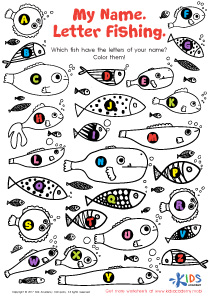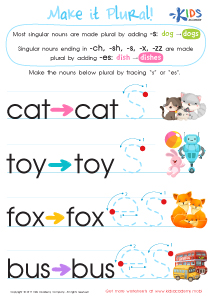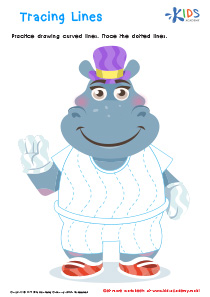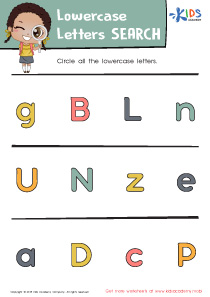Letter recognition Easy Alphabet Worksheets for Ages 3-7
10 filtered results
-
From - To
Discover our "Letter Recognition Easy Alphabet Worksheets," designed specifically for children ages 3-7. These engaging worksheets promote early literacy and help young learners identify and understand letters in a fun, interactive way. With a variety of colorful activities including tracing, matching, and drawing, these resources cater to different learning styles, making daily practice enjoyable. Our worksheets support letter recognition through playful and effective means, ensuring that little ones build a solid foundation for reading and writing. Perfect for home or classroom use, enhance your child's alphabet skills with our easy-to-use, playful learning materials and watch their confidence grow!
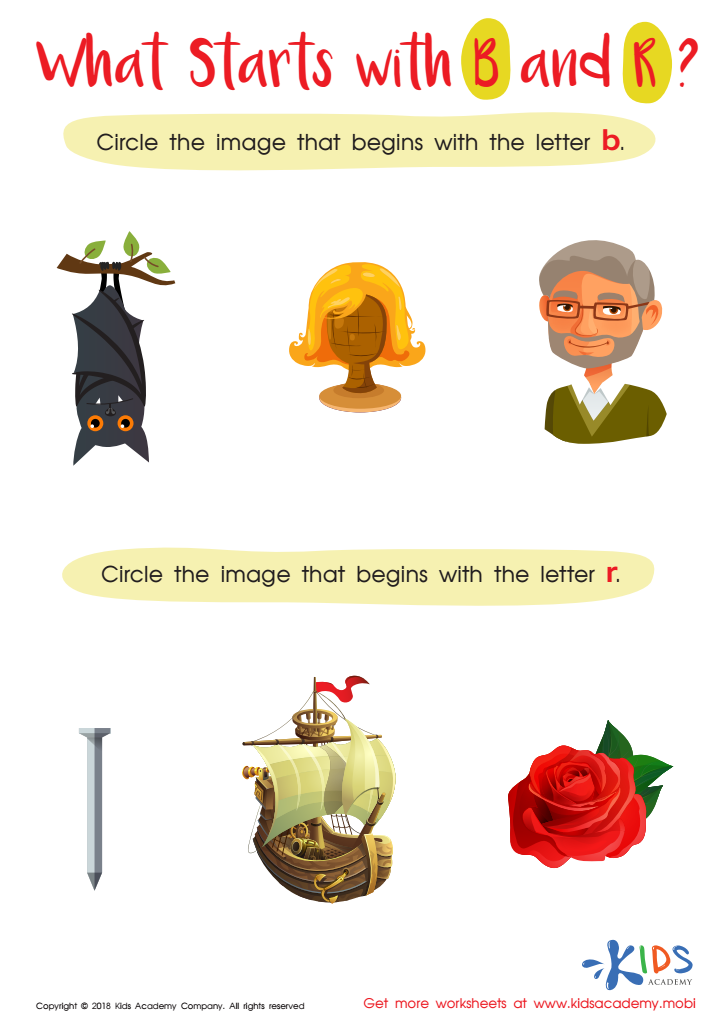

What Starts with B and R? Worksheet
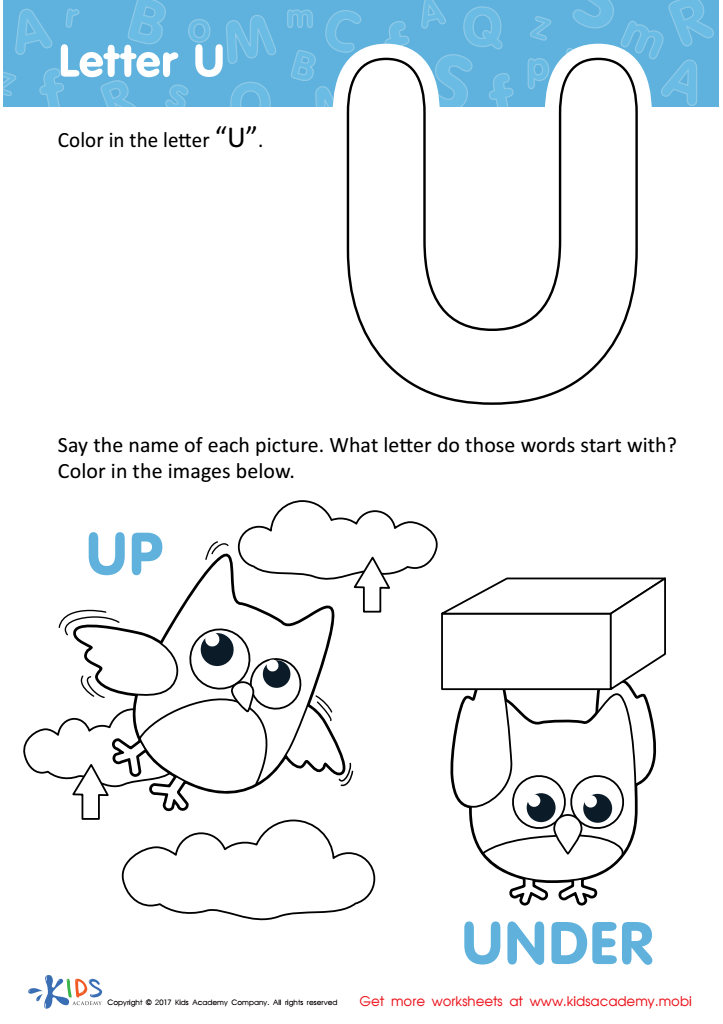

Letter U Coloring Sheet
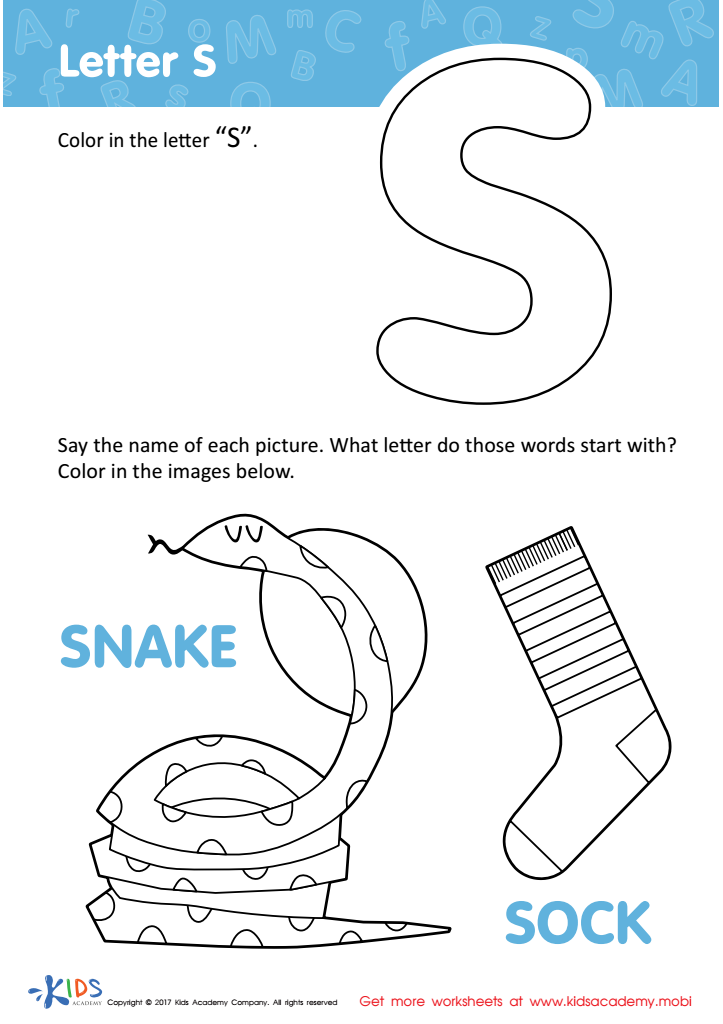

Letter S Coloring Sheet
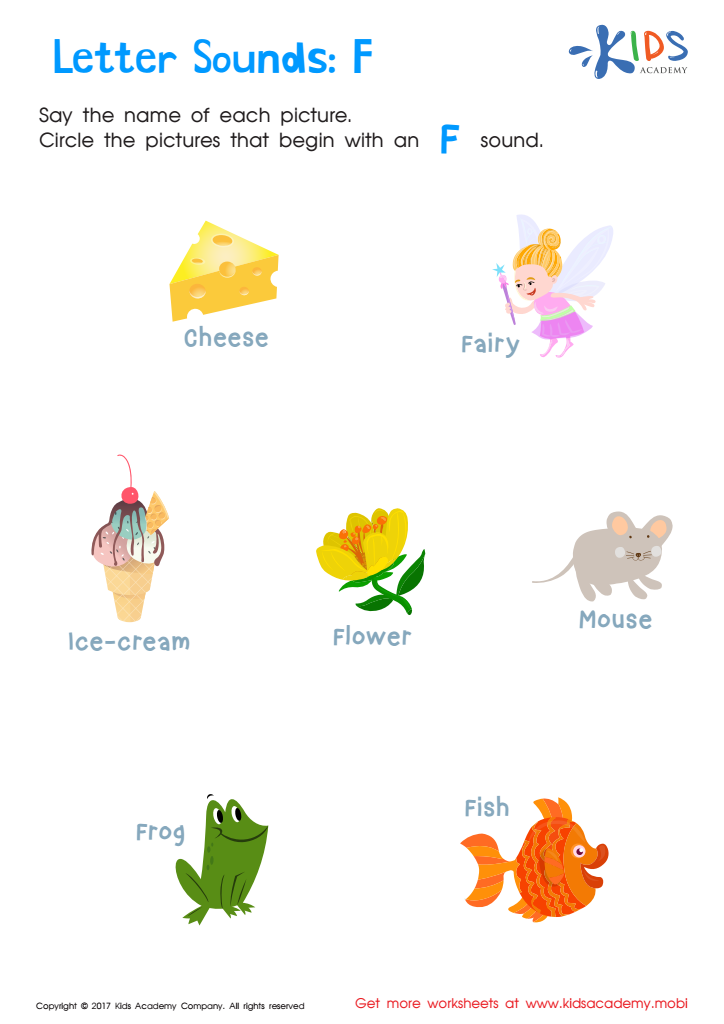

Letter F Sounds Worksheet
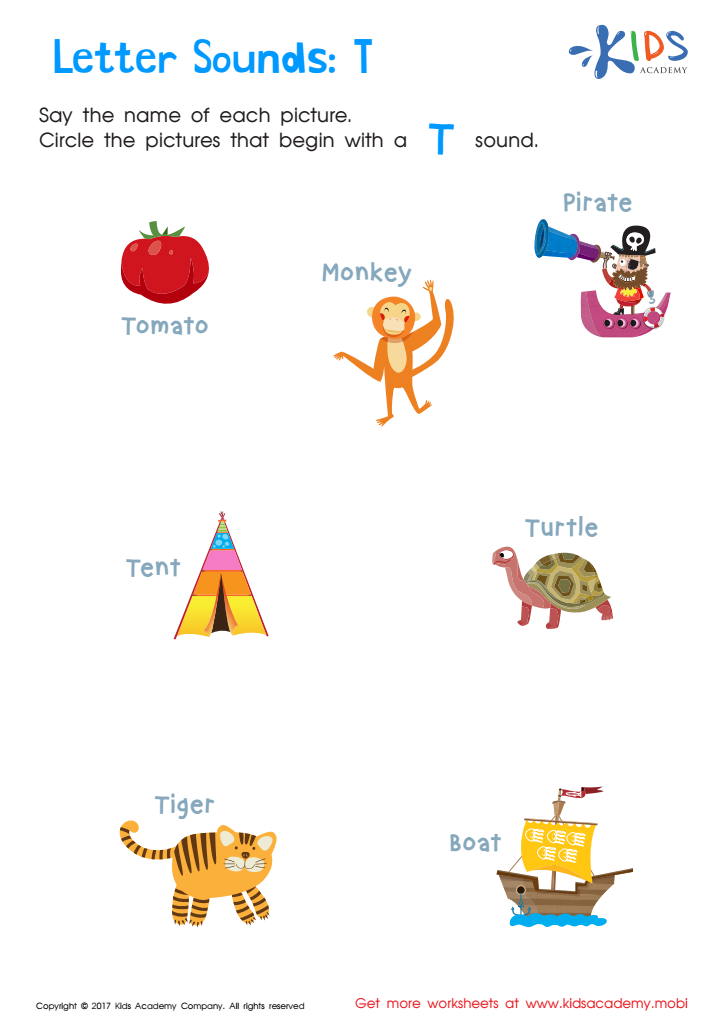

Letter T Sounds Worksheet
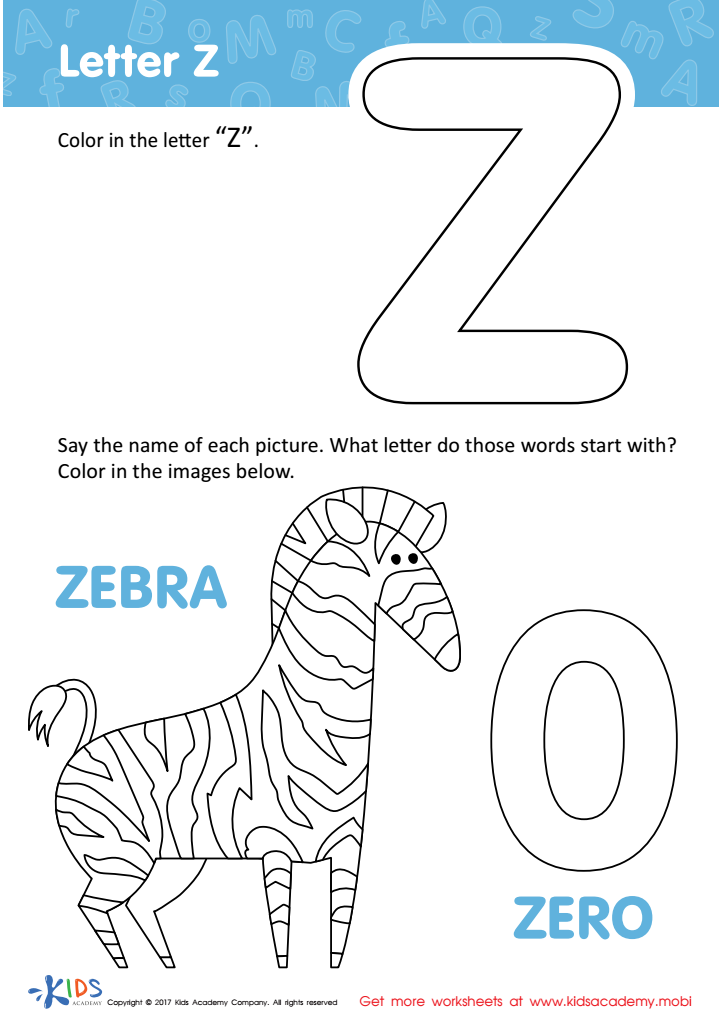

Letter Z Coloring Sheet
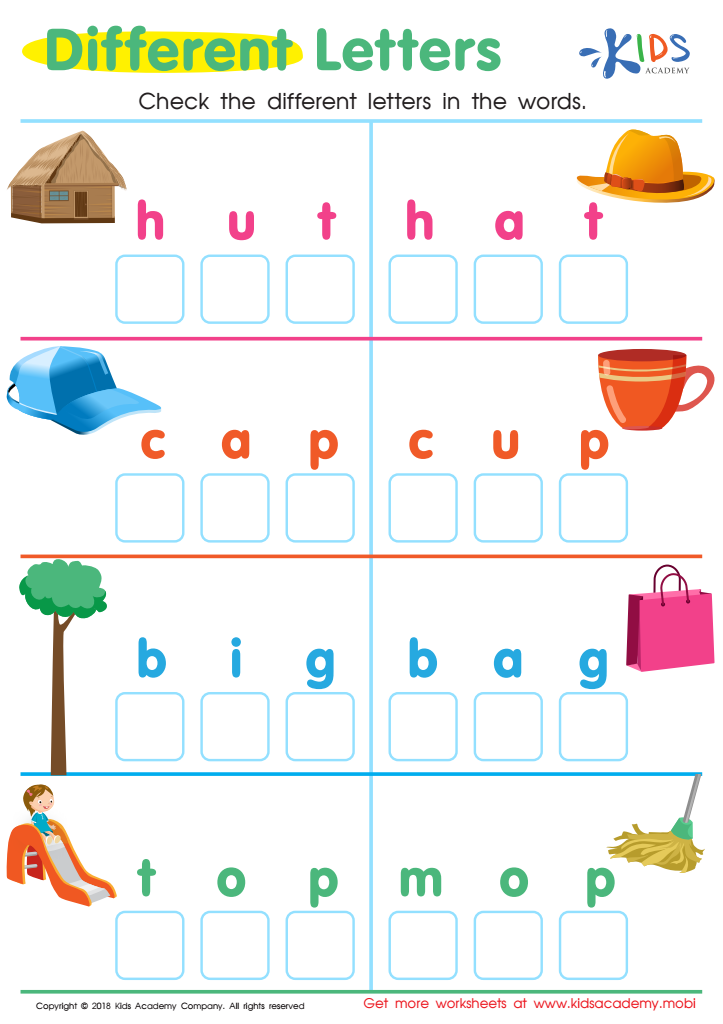

Different Letters Reading Worksheet
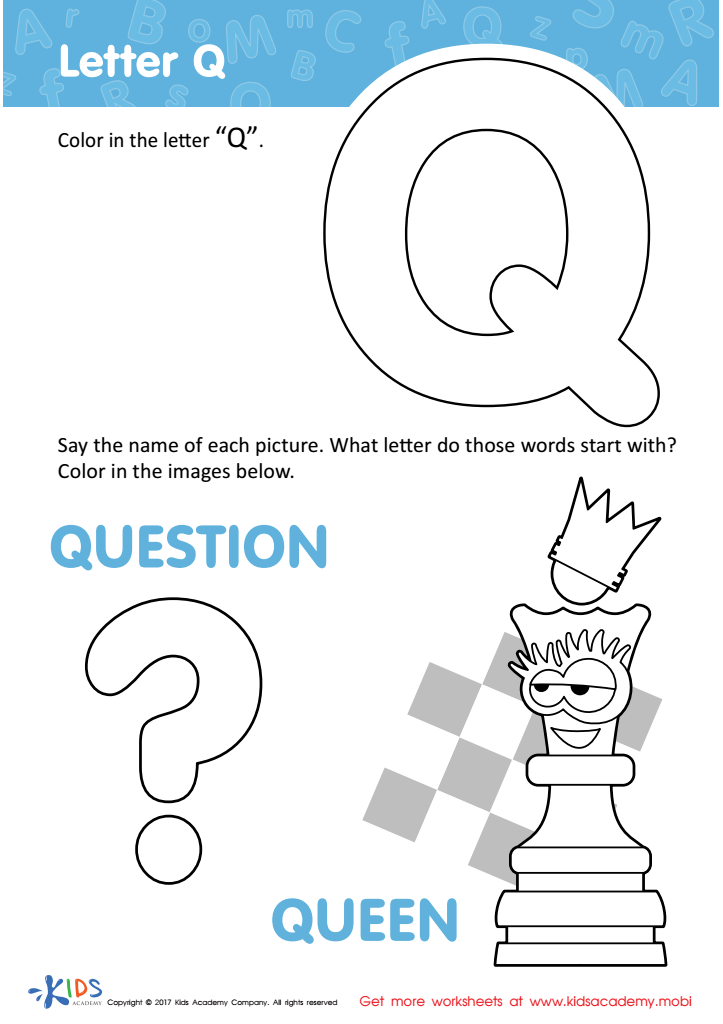

Letter Q Coloring Sheet
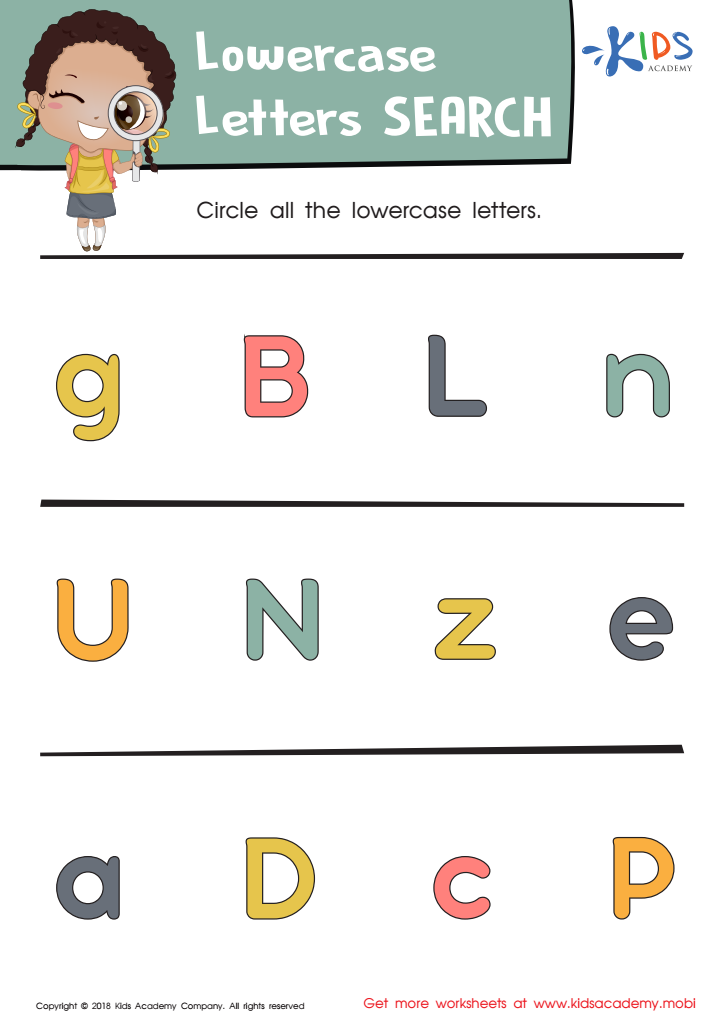

Lowercase Letters Search: Assessment Worksheet
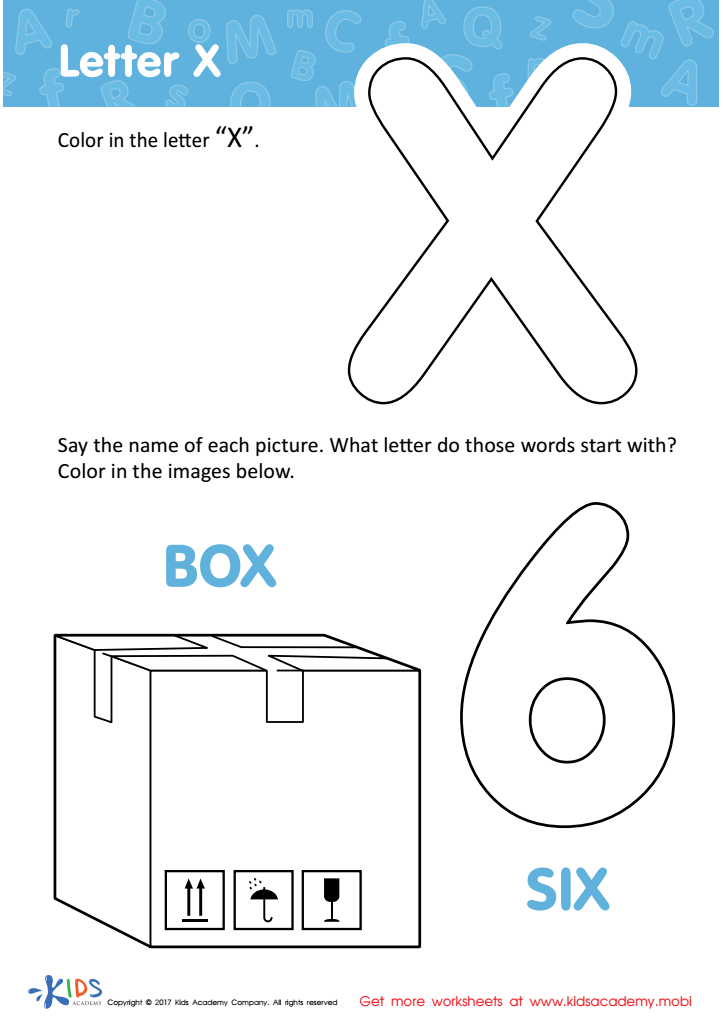

Letter X Coloring Sheet
Letter recognition is a foundational skill that plays a crucial role in early literacy development for children aged 3-7. Parents and teachers should prioritize this skill because it sets the stage for future reading and writing abilities. Recognizing letters helps children understand that letters represent sounds, an essential component of phonemic awareness, which is vital for decoding words.
Early mastery of letter recognition promotes children's confidence and enthusiasm for learning. Familiarity with the alphabet allows them to explore books and engage in storytelling, fostering a lifelong love for reading. Furthermore, proficient letter recognition empowers children to express themselves through writing, enhancing their communication skills.
In addition, recognizing letters can be integrated into fun and playful activities, helping to maintain children's interest. Interactive games and songs can make the learning process enjoyable, solidifying their knowledge in a stress-free environment.
By supporting letter recognition, parents and teachers contribute to children's overall cognitive development, nurturing critical thinking and problem-solving skills. In summary, fostering letter recognition in early childhood education is an essential step in strengthening literacy, promoting effective communication, and laying a solid foundation for lifelong learning.

 Assign to My Students
Assign to My Students








